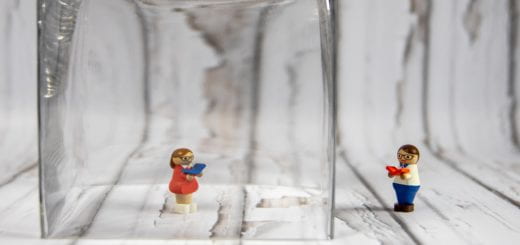Transformative Teaching and Learning Announces 14 Grant Recipients and Launches New Resource

The Transformative Teaching and Learning (TTL) initiative is pleased to announce the 14 grant recipients of the second round of TTL Innovation Incubator grants:
| Grant Recipient | Unit | Project Title |
| Pamela Bhatti | ECE, College of Engineering | Modeling Human Hearing with Black Box Circuitry Building Blocks. |
| Rachel Dean-Ruzicka | LMC, Ivan Allen College of Liberal Arts | Soundwriting: Building Humanities-oriented Research Skills through Podcasting |
| Ashutosh Dhekne | CS, College of Computing | Troubleshooting Simulated Internets Enhance Intuition, Problem-Solving and Empathy |
| Linda Green | Biological Science, College of Sciences | Testing the Impact of Green Infrastructure in Urban Ecology |
| Nian Liu | CHBE, College of Engineering | From 2D to 3D: Designing Systems to Learn about Material and Energy Balance |
| Mary Peek | Chemistry & Biochemistry, College of Sciences | Next Level Biochemical Education: Learning through Mini-CUREs |
| Nimisha Roy | CoC/SCI, College of Computing | Integrating AI Tools in Software Development |
| Himani Sharma | MSE, College of Engineering | Recycling Polymer Waste from Campus Labs |
| Abigale Stangl | Industrial Design, College of Design | Inclusive Tactile Media Design with Blind Individuals |
| Lauren Steimle & Tuba Ketenci | ISYE, College of Engineering | Real-life Optimization Decisions: Hospital Locations |
| Henrik von Coler | Music, College of Design | Designing and Evaluating Meta-instruments |
| Danielle Willkens | Architecture, College of Design | Exploring Southern History and Architecture through the Green Book Documentation and Digitalization Project |
 The Innovation Incubator grants support the development, implementation, and evaluation of transformative teaching projects in undergraduate courses. In partnership with Undergraduate Research Opportunities Program (UROP), the recently awarded grants focus on CUREs, or course-based undergraduate research experiences. While Georgia Tech has long offered opportunities for undergraduate students to engage in scholarly research, much of this occurs outside the classroom; this can lead to disconnection from course-based learning as well as unequal access to opportunities. Through the Innovation Incubator grants, TTL seeks to expand opportunities for CUREs and support faculty as they develop courses “in which students address a research question or problem that is of interest to the broader community with an outcome that is unknown both to the students and to the instructor” (Bhattacharyya et al. 2020). Funding for this round of the TTL Innovation Incubator faculty grants was provided by the Georgia Tech Research Corporation (GTRC), the Center for Teaching and Learning (CTL), and the Office of Undergraduate Education (OUE).
The Innovation Incubator grants support the development, implementation, and evaluation of transformative teaching projects in undergraduate courses. In partnership with Undergraduate Research Opportunities Program (UROP), the recently awarded grants focus on CUREs, or course-based undergraduate research experiences. While Georgia Tech has long offered opportunities for undergraduate students to engage in scholarly research, much of this occurs outside the classroom; this can lead to disconnection from course-based learning as well as unequal access to opportunities. Through the Innovation Incubator grants, TTL seeks to expand opportunities for CUREs and support faculty as they develop courses “in which students address a research question or problem that is of interest to the broader community with an outcome that is unknown both to the students and to the instructor” (Bhattacharyya et al. 2020). Funding for this round of the TTL Innovation Incubator faculty grants was provided by the Georgia Tech Research Corporation (GTRC), the Center for Teaching and Learning (CTL), and the Office of Undergraduate Education (OUE).
In addition, TTL is proud to launch a new online resource and project showcase. This database spotlights recent examples of Transformative Teaching and Learning projects facilitated by Georgia Tech faculty. As the TTL CUREs projects roll out in the 2024-2025 academic year, the online project showcase will continue to grow.
The showcase aims to inspire and inform educators while fostering a culture of innovative teaching and learning practices. Using the database, faculty can discover experiential learning projects across disciplines; each project lists goals, activities, student impact, and project dissemination. The resource is designed to be easily navigated by faculty seeking projects related to their own course material. Users can search by college, course name, faculty cohort, or keyword.
Along with the Innovation Incubator grants, the online showcase is part of the Institute’s Strategic Plan to support faculty as they create purposeful and relevant learning opportunities throughout Georgia Tech. The TTL initiative aims to “promote innovation in teaching and learning practices by providing faculty support to innovate and scale transformative teaching practices, and creating conditions for all students to engage in meaningful experiential learning.”
“Enhancing Programming Proficiency through Robotics Projects” is one of several project examples included in the database. This project was led by Rodrigo Borela, lecturer in the College of Computing and recipient of a first-round TTL grant. Students in CS1301 completed five robotics challenges over a semester, writing code used to make robots perform various tasks. By participating in these tangible challenges related to real-world situations and skills, students improved their computational thinking abilities and feelings of self-efficacy towards computer science.
“TTL means creating learning experiences that help students grow their skills and knowledge, as well as their sense of self, in equal measures. TTL helps students realize that to succeed in a profession or a field, they need to pull from all aspects of their character to build meaning and meaningful things,” said Borela. Borela noted a significant increase in computational skills among students with little coding experience after the robotics project, suggesting that experiential learning may help close a gap in student achievement originating from dissimilar high school experiences and opportunities.
These transformative teaching and learning projects impact more than students’ college careers. “Transformative Teaching and Learning helps students develop skills and habits of thinking that change the way they behave as future workers and citizens,” said Leah Misemer, assistant director of the Vertically Integrated Projects (VIP) undergraduate research program and another first-round grant recipient. Misemer’s graphic medicine project is featured in the database. “TTL courses help students transform in this way by having them put learning into practice.”
CTL’s Kate Williams heads up faculty-facing efforts on behalf of the TTL strategic initiative. She notes that “experiential learning has long been a signature part of the Georgia Tech student experience. The TTL Initiative aims to build on this history by incorporating high impact practices into traditional course structures, ensuring all students have access to transformative learning experiences.” Williams is excited to see the new experiential learning projects that will come from the second-round grants.
Faculty interested in learning more about CUREs are invited to join a Faculty Learning Community in the upcoming academic year. To join, email CTL Executive Director, Laura Carruth.
Learn more about the Transformative Teaching and Learning Initiative, and explore the new Teaching and Learning Project Showcase on the Center for Teaching and Learning’s website.
Many thanks to Laura Williams, director of Undergraduate Research within the Office of Undergraduate Education.




